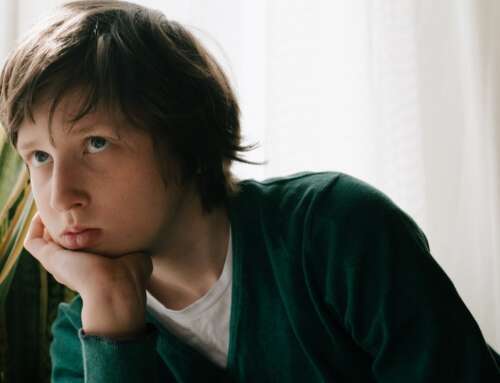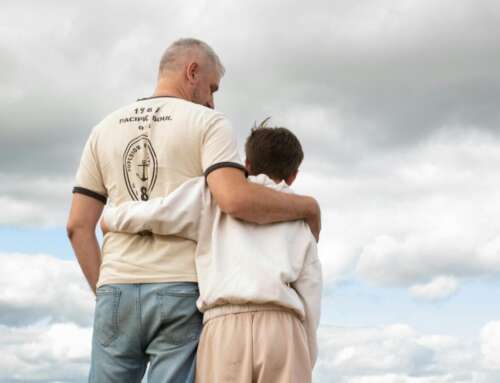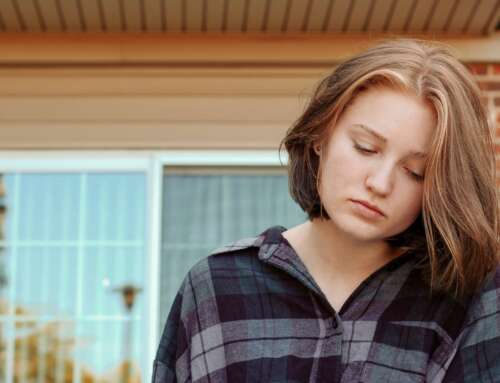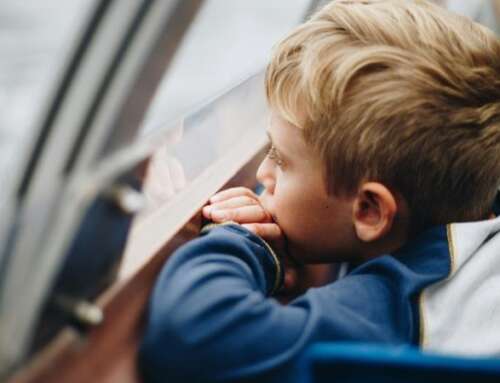 Dr Justin Coulson
Dr Justin Coulson
Rae is a funny, bubbly, precocious, and remarkably talented 13 year-old girl. She is talkative, clearly intelligent, and insightful.
She is also a victim of psychological and emotional abuse. She is regularly yelled at, called names, threatened, and shamed. Rae’s step-father uses his physical presence to instill fear in Rae, even when she has done nothing. She lives with continual concern that he will hurt her. Rae is consistently called the vilest of names, including “f*#!ing idiot”, “little c@%*”, and more.
When I spoke with Rae, she had left home, following in the footsteps of her 15 year-old sister, Mia. After two months with relatives, Mia had decided to try living at home again. Rae had been gone for two weeks, and had no intention of returning.
“Don’t you want to live in that new house your parents bought?” I asked. Rae’s mother and step-father had just spent a significant amount of money building a beautiful home in a beachside suburb of Sydney. Her comments were piercing:
“It doesn’t feel nice to be there. All mum does is yell at us and get angry at us and call us names. She treats us like slaves. It doesn’t matter how nice the house is. It’s the people in the house that make it good to live in.”
At the time I talked with Rae, she told me that her mum had not asked her where she was staying in the two weeks since she left home. Rae took that as a sign that “mum doesn’t care.”
Rae showed me her mum’s social media profile (instagram and Facebook). Ironically, it was filled with pictures of mum doing things with her kids.
“If my family was like it is on Facebook in real life, it would be awesome” Rae told me. “But it’s not. Mum makes out that she’s devoted. But she makes us feel like she hates us when there’s no one watching.”
Research
Children who are emotionally abused and neglected face similar and sometimes worse mental health problems as children who are physically or sexually abused, according to a new study published by the American Psychological Association.
Researchers compared 5,616 youths with lifetime histories of one or more of three types of abuse: psychological maltreatment (emotional abuse or emotional neglect), physical abuse and sexual abuse. Children who had been psychologically abused suffered from anxiety, depression, low self-esteem, symptoms of post-traumatic stress and suicidality at the same rate and, in some cases, at a greater rate than children who were physically or sexually abused.
Among the three types of abuse, psychological maltreatment was most strongly associated with:
- depression,
- general anxiety disorder,
- social anxiety disorder,
- attachment problems,
- and substance abuse.
According to the researchers psychological maltreatment that occurred alongside physical or sexual abuse was associated with significantly more severe and far-ranging negative outcomes than when children were sexually and physically abused and not psychologically abused. Moreover, sexual and physical abuse had to occur at the same time to have the same effect as psychological abuse alone on behavioral issues at school, attachment problems and self-injurious behaviors, the research found.
What do children need?
I asked Rae what three things she wished her mum would do so she felt loved. Her answers were so simple it almost left me weeping:
- I just want her to actually listen to me. She won’t listen. Ever. She just tells me to get over it when I have a problem and she’s never interested.
- If she would talk to me nicely. She doesn’t have to yell all the time.
- I wish she would hug me.
Rae then mentioned a fourth item. “My dad doesn’t live with us. He hasn’t called to say hi or ask me how I’m going for more than a month. It’s not that hard to pick up the phone and say hi.”
A parent who is abusive AND offers love and care will not solve the problem. The abuse will undermine any trust that may be built up through the expression of love. But when parents can be pervasively loving, caring, and ‘present’, their children are far more likely to flourish.
The impact of psychological abuse and neglect is significant.
Ultimately, it can be overcome with three simple things: A parent who listens, a parent who cares enough to be involved, and a parent who can give those hugs that soothe, welcome, and help a child feel loved.
Dr Justin Coulson speaks to professionals and parents about positivity and happiness – at work, at home, and in life. He and his wife are the parents of six children.







How does a parent mend the damage from psychological abuse with their child once their child has grown up and left home and the psychological abuse does not continue. How does a parent make amends and continue to have a relationship with that child?
Given that the abuse no longer continues due to the parent recognising their deficits whilst bringing up that child, is it possible to help heal their child?
First and foremost – apologise, and listen. And be prepared to let control of the relationship be in the hands of the child, and not the parent. Recognise that change might not be possible right now – you can’t mend something that isn’t ready to heal, but you can open the possibility.
I heard a story of a father who realised he had alienated his son, took him out to a cafe (neutral ground) and expressed his regret for how he had treated him as a teen. He then asked his son to name all the times he had felt hurt by his father’s actions so that he could apologise for every one. It took a couple of hours, but began a beautiful process of healing.
Of course, this approach would not work for every relationship – both parties would have to be ready to talk and listen and WANT to reconcile, but it’s a possible approach.
Thank you for this article. Through being busy & feeling completely worn down by my 14 yr old , I feel like I have been too critical & yelling has become the norm out of sheer frustration. Thanks for the timely reminder that my child is vulnerable & I need to get a grip!!!
Acknowledging the wrongdoing and saying sorry, *sigh* hard to get people to do when denial doesn’t let them admit it.
Hi Deb, in my experience the first step is a heartfelt spoken or written apology that expresses an acknowledgement of the actions that took place and the regret that is felt, with the desire to begin healing the relationship between the two people. It is important to leave blame or excuses out of the apology and just give it as an offering with no strings attached. The ‘child’ then has total freedom to choose whether and when further contact is appropriate. Counselling is highly recommended to ensure the relationship patterns of the past don’t reemerge, which can easily happen even if one person has significantly healed. Kylie Heenan – Counselling Therapist
Of course if they are willing to look into healing the hurt but sometimes we feel burnt and will resist going back into it. If both parent and child are willing they can work through it.
Alot of these parents have personality disorders..Narcissism drives the personality that fronts with nice to an audience and ugly when out of sight. These are very dangerous people with disturbed minds and the style of parenting can create the same pattern in the offspring to but repeat in their relationships.
I know I was married to one and it seriously affected my ability to have another love relationship.
What to do about it.
1. Recognise the disorder and understand you cant fix it and it’s not your fault..It’s their problem. Forgive them and move on. Get help ..counselling …etc….They say the number one thing is make no contact..as you are only a vent for their own disturbance which is very distorted and they cannot see it themselves.
Read move about narcissim to find out more. Its a dangerous disorder.
I really like this article. It relates a lot to my relationship with my parents. To the above commenter Deb, I had left home at 20 and my mother still feels to treat me like a child and sometimes it hurts so bad that I cannot be in the same room as her. I try to make peace but u don’t think she is ever satisfied. She spends more time going to different places then she does with her children. It has had a big impact on me and even though I’m older I think that j should have dealt with it but it always has stuck in my heart.
I am a middle-aged woman who was neglected, and psychologically, sexually and physically abused by my wealthy and professional now 88 year old father for over 35 years. He has never admitted any wrongdoing and has always blamed me and said that my sibling and I fabricated what he did. All I ever wanted was a heartfelt apology or even acknowledgment that he was sorry for the terrible things he did to me and wished he had been a good father. It would have helped me to heal and have been a starting point to rebuild our relationship. I forgave him decades ago so that I would not become bitter, but despite intensive therapy the trauma he inflicted on me continues to negatively impact every area of my life. I confronted another family friend who molested me as a child and he apologised. When I told his family, they were disgusted. This validated that the abuse was wrong and I was liberated from the negative effects of it. Acknowledgement of abuse in the public arena facilitates emotional healing.